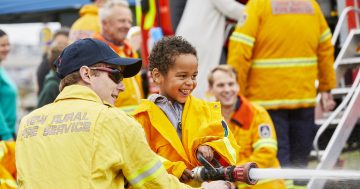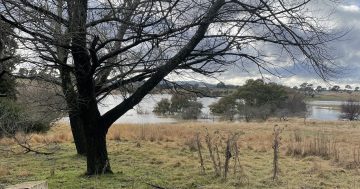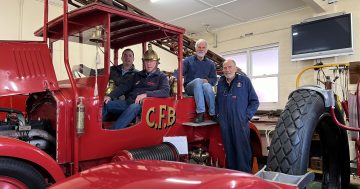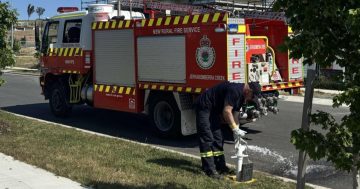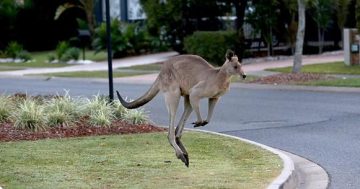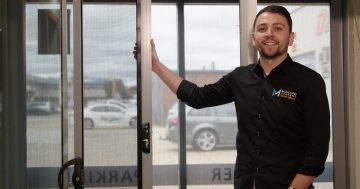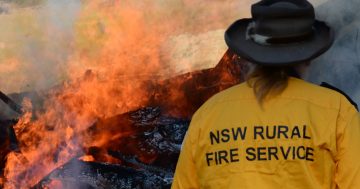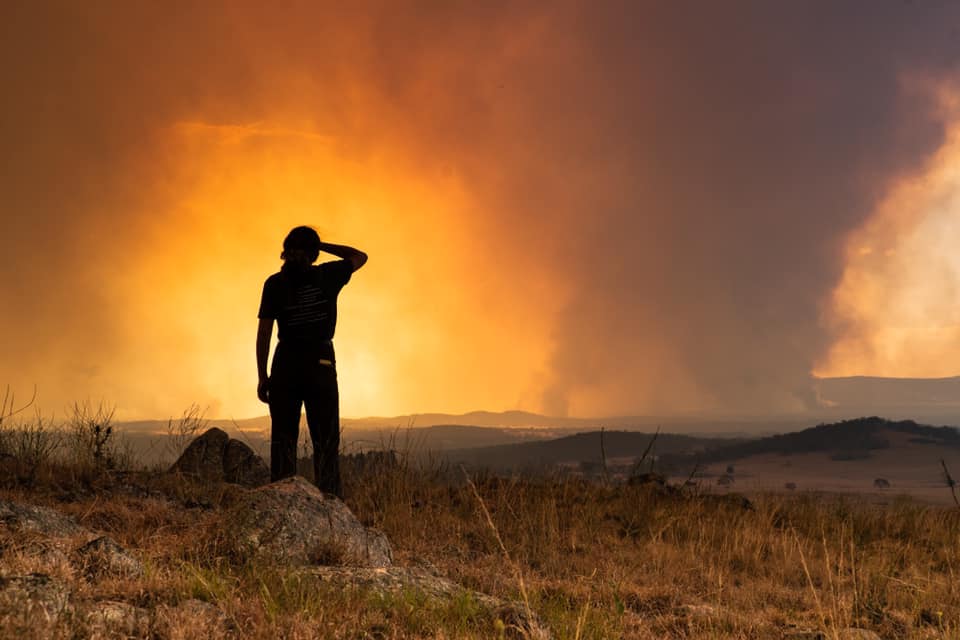
It’s been likened to hell – when all that the eye can see is that eerie orange glow of bushfire. Photo: Jarrah Knowles.
It was something a rural firefighter said this week. It took me back to 9/11 to one image in particular, the sort that never leaves you.
No, not that one of the plane hitting the World Trade Centre, or the blanket of debris making everyone look like ghosts, or even the expressions on the faces of the people as they looked up to see what they couldn’t believe.
It was that image of rescue crews racing towards the catastrophe while everyone was running away.
The firie was being interviewed for a story about his village brigade’s 100th birthday celebrations – and the awarding of service medals. One of the awards he, and a few of his colleagues received, was for their service during the 2020 South Coast fires.
He was being so modest about it all. How fighting fires, protecting the lives of other people and their property was “just what we do”.
Why do you do it? I had to ask. “Honestly, I can’t tell you,” he said. I got that he wasn’t saying it was a secret society and because I didn’t do what he and his mates did, I couldn’t expect to understand – although there was probably an element of truth in that, too.
He said he just couldn’t explain it.
“The only thing I can think of,” he joked, “is that we’re all crazy.”
But he came close when he talked about his brigade members, about them being “special people” who put their lives on the line.
Few could forget the 2003 Canberra firestorm. That 18 January day when fires roared into the Canberra suburbs.
I was driving into work at The Canberra Times under the scariest of skies. It was orange, then purple, black, then, around 3 pm, it turned the scariest colour of all. Unrecognisable.
One of my colleagues was heading in too, carefully extinguishing his cigarette in the ashtray. In his other hand he held a scorched bit of leaf that had just floated down from the sky. “Look at this,” he said, “this place is really going to blow.”
That night was, in retrospect, so busy, so scary, so unusual that we didn’t have time to acknowledge any of that. The only thing that hits me in the face now as it did then was the smell every time one of the journalists or photographers came back into the office. They reeked of smoke.
We spent the night, as usual, editing stories. What was not usual was how swiftly we had to update death tolls and property losses. This can’t be happening, we all thought to ourselves.
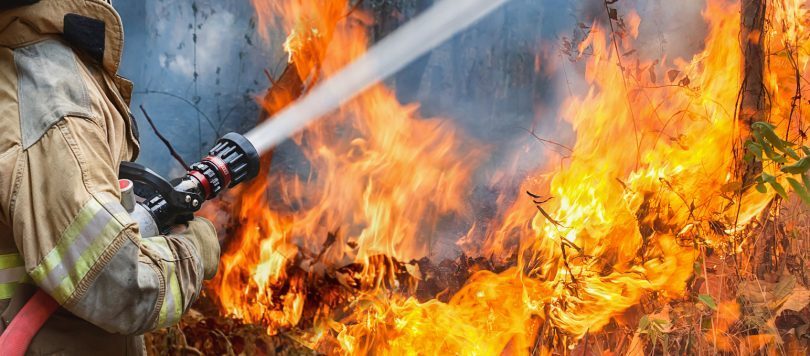
Firefighters, many of whom are volunteers, take their life in their hands every time they go out on a job. Photo: Warwick Costin.
Living in the bush, supporting your volunteer bushfire brigade is what you do. You give them money, you make them sandwiches when they’ve been on long jobs, you don’t call them when you can fix it yourself. You don’t fuss over them when you do need them, you just do, in your small way, what you can to make their jobs easier.
But you do, of course, give them grief, if something goes wrong. Like the small brigade in a village on Canberra’s outskirts which turned up to a grass fire almost immediately after the alarm was raised. Might have been better had they come a little more prepared than so very quickly – and remembered to first fill the tank up with water.
A few years back we had to call the local RFS in when lightning struck a tree in the paddock. The property was up a steep, narrow, bad dirt road and their truck was just a fraction too wide. So they backed down the driveway and tried the adjacent entrance – on an equally steep, bad dirt road but just a fraction wider. They made it up to the top and headed across the paddock to the burning tree.
It was, of course, winter, so they probably had come from a warm house and hot dinner out to the middle of nowhere to stand in a freezing paddock aiming their hose at a tree. It was a recalcitrant thing. Just when you thought it had burnt out, it would fire up again.
Those volunteer firies stayed with it for hours. Refusing our offers of hot drinks, food and help, their concentration never deviating from their task.
When it was eventually under control, and they started to pack up, I slipped some cash into an envelope and put it on the front seat of the truck with a note of thanks and suggestion that they might enjoy a slab after work.
I forgot all about it until the next night, driving home, I stopped at the RMB to find my envelope and the cash with a scribble on it, saying: “Thanks, but we can’t accept it”.
Bless ’em.












